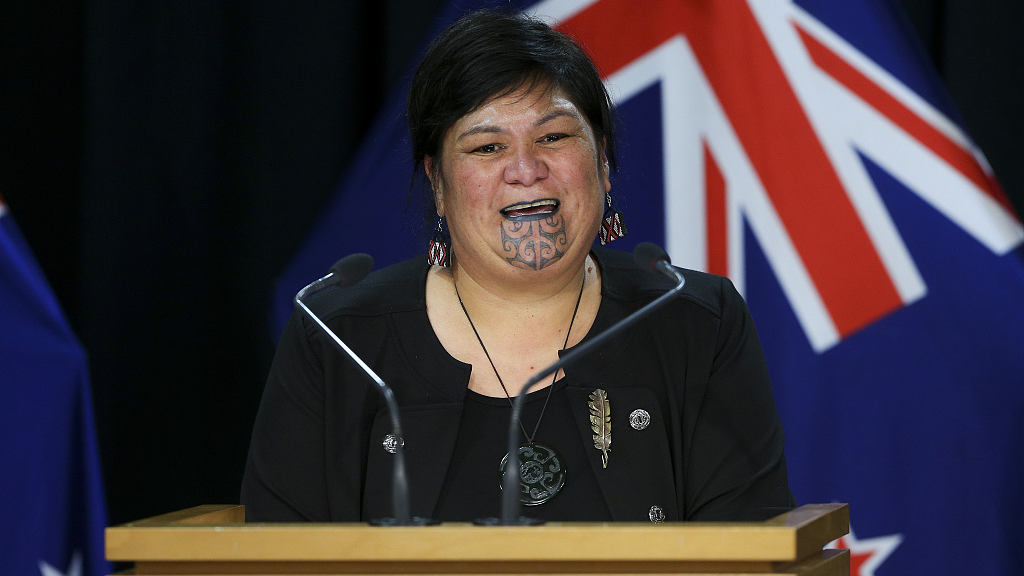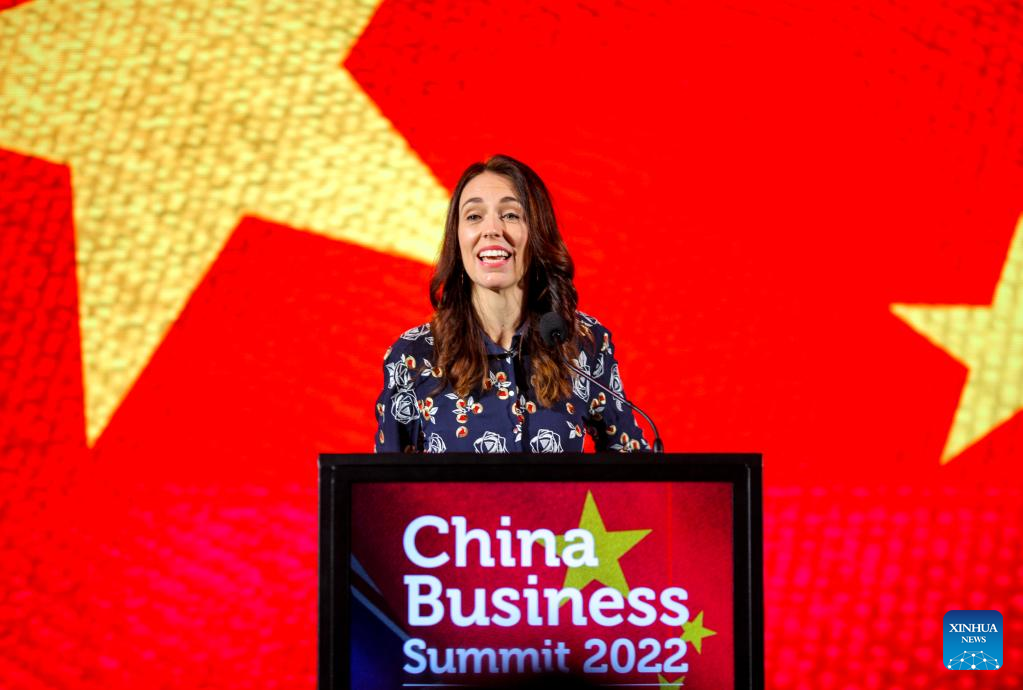
New Zealand Foreign Minister Nanaia Mahuta talks to media during a press conference at Parliament in Wellington, New Zealand, April 22, 2021. /CFP
New Zealand Foreign Minister Nanaia Mahuta talks to media during a press conference at Parliament in Wellington, New Zealand, April 22, 2021. /CFP
Editor's note: Hannan Hussain is a foreign affairs commentator, author, and assistant research associate at the Islamabad Policy Research Institute. The article reflects the author's opinions and not necessarily the views of CGTN.
New Zealand Foreign Minister Nanaia Mahuta's visit to China marks the first visit by a New Zealand minister to China since 2019. It also comes months after a substantive exchange between Chinese President Xi Jinping and former New Zealand Prime Minister Jacinda Ardern last November in Bangkok, Thailand, which highlighted the value of improving mutual understandings to inform future stability.
With 50 years of sound and steady bilateral progress in the backdrop, Foreign Minister Mahuta's exchange with her Chinese counterpart Qin Gang will set a positive tone for intersecting economic and strategic interests that have a direct bearing on years to come. Robust trade, delicate diplomacy and regional integration have long served as important drivers of New Zealand-China cooperation in the past, and can inform fresh opportunities to consolidate their landmark comprehensive strategic partnership.
Consider impressive growth in bilateral trade volume. Part of it is sustained on the back of accelerated market access through their landmark free trade agreement (FTA)in 2008. China accounts for nearly a third of New Zealand's total exports in 2023 through February, and enjoys the status of New Zealand's largest trading partner.
The resulting consistency reflects positively on prospects to strengthen trade compatibility, and enrich their comprehensive strategic partnership by bringing more intersecting interests in its realm. To that end, the relationship's success in creating "many firsts" is a tacit reminder that high-level ministerial exchanges through Mahuta's visit ought to witness upticks, especially to expand one partner's contribution to the other's independent growth trajectory.
Interestingly, highly integrated trade interests have lifted this five-decade relationship to a vantage point. Consider how initial trade fast evolved from exchanges in goods to highly competitive trade areas spanning investments, scientific and technological cooperation, digital economy imperatives, as well as green economy fields.

New Zealand Prime Minister Jacinda Ardern speaks at the annual China Business Summit in Auckland, New Zealand, August 1, 2022. /Xinhua
New Zealand Prime Minister Jacinda Ardern speaks at the annual China Business Summit in Auckland, New Zealand, August 1, 2022. /Xinhua
As two staunch advocates of free market access under key multilateral trade arrangements – such as the Regional Comprehensive Economic Partnership – China and New Zealand are better positioned to implement more contours of their upgraded FTA, and deliver measurable economic gains for their people and businesses.
After all, prompt upgradation of the FTA last year succeeded in contributing to a total bilateral trade volume of up to $38 billion by June, offering clues on sustaining such priorities long-term. Mahuta's stated intent to engage closely with the government and Chinese business leaders in Beijing can help attract more positive investor sentiment, and rekindle what Prime Minister Chris Hipkins described as "in-person opportunities" on a country-to-country basis.
On a strategic level, Mahuta's visit is also informed by New Zealand's consistent, fair and highly reciprocal diplomatic balance towards China for years. Recently, it has refused to blunt its strategic autonomy with China in the face of substantial pressure from select Western allies, and maintains tactical distance from complex security arrangements and bloc groupings that aim to undermine, not advance, its China relationship. All this makes for a healthy and productive discourse on issues of geostrategic significance during the visit, such as stemming the Ukraine conflict and risks of protracted unrest.
Furthering the case for convergence on hot-button issues is China and New Zealand's track-record of constructive leadership to support cohesion in key regional bodies, such as the Asia-Pacific Economic Cooperation,based on principles of inclusivity and openness. That spirit is also at the heart of a "comprehensive" and "in-depth" assessment of a fast-changing regional environment between both sides.
Ultimately, Mahuta's China visit promises to consolidate win-win trade and economic linkages with Beijing, advance regional peace building opportunities, and deepen bilateral trust beyond the 50-year mark. A demonstrated history of tempering challenges with resilience leaves little in the way of coordinating differences, with their comprehensive strategic partnership slated to gain plenty.
(If you want to contribute and have specific expertise, please contact us at opinions@cgtn.com. Follow @thouse_opinions on Twitter to discover the latest commentaries on CGTN Opinion Section.)